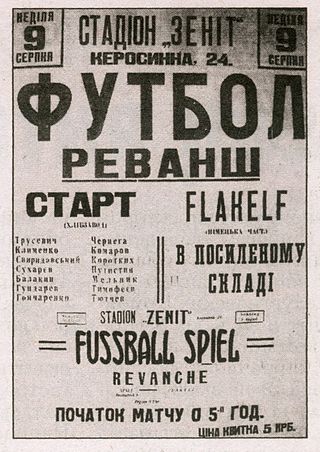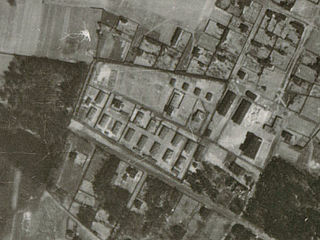Related Research Articles

Aleksandr Isayevich Solzhenitsyn was a Russian author and Soviet dissident who helped to raise global awareness of political repression in the Soviet Union, especially the Gulag prison system. He was awarded the 1970 Nobel Prize in Literature "for the ethical force with which he has pursued the indispensable traditions of Russian literature". His non-fiction work The Gulag Archipelago "amounted to a head-on challenge to the Soviet state" and sold tens of millions of copies.

The Gulag Archipelago: An Experiment in Literary Investigation is a three-volume non-fiction series written between 1958 and 1968 by Russian writer Aleksandr Solzhenitsyn, a Soviet dissident. It was first published in 1973 by the Parisian publisher YMCA-Press, and it was translated into English and French the following year. It explores a vision of life in what is often known as the Gulag, the Soviet labour camp system. Solzhenitsyn constructed his highly detailed narrative from various sources including reports, interviews, statements, diaries, legal documents, and his own experience as a Gulag prisoner.

One Day in the Life of Ivan Denisovich is a short novel by the Russian writer and Nobel laureate Aleksandr Solzhenitsyn, first published in November 1962 in the Soviet literary magazine Novy Mir. The story is set in a Soviet labor camp in the early 1950s and features the day of prisoner Ivan Denisovich Shukhov.

The Solovki special camp, was set up in 1923 on the Solovetsky Islands in the White Sea as a remote and inaccessible place of detention, primarily intended for socialist opponents of Soviet Russia's new Bolshevik regime.

Kolyma or Kolyma Krai is a historical region in the Russian Far East that includes the basin of Kolyma River and the northern shores of the Sea of Okhotsk, as well as the Kolyma Mountains. It is bounded to the north by the East Siberian Sea and the Arctic Ocean, and by the Sea of Okhotsk to the south. Kolyma Krai was never formally defined and over time it was split among various administrative units. As of 2023, it consists roughly of the Magadan Oblast, north-eastern areas of Yakutia, and the Bilibinsky District of Chukotka Autonomous Okrug.

Prussian Nights is a long poem by Aleksandr Solzhenitsyn, who served as a captain in the Soviet Red Army during the Second World War. Prussian Nights describes the Red Army's march across East Prussia, and focuses on the traumatic acts of rape and murder that Solzhenitsyn witnessed as a participant in that march.

Stanisław Swianiewicz was a Polish economist and historian. A veteran of the Polish-Soviet War, he was during World War II a survivor of the Katyn massacre and an eyewitness of the transport of Polish prisoners-of-war to the forests outside Smolensk by the NKVD.
Dovber Schneuri was the second Rebbe of the Chabad Lubavitch Chasidic movement. Rabbi Dovber was the first Chabad rebbe to live in the town of Lyubavichi, the town for which this Hasidic dynasty is named. He is also known as the Mitteler Rebbe, being the second of the first three generations of Chabad leaders.
The repatriation of the Cossacks or betrayal of the Cossacks occurred when Cossacks who were opposed to the Soviet Union and fought for Nazi Germany, were handed over by British and American forces to the Soviet Union after the conclusion of World War II. Towards the end of the European theatre of World War II, many Cossacks forces with civilians in tow retreated to Western Europe. Their goal was to avoid capture and imprisonment by the Red Army for treason, and hoped for a better outcome by surrendering to the Western Allies, such as to the British and Americans. However, after being taken prisoner by the Allies, they were packed into small trains. Unbeknownst to them, they were sent east to Soviet territories. Many men, women and children were subsequently sent to the Gulag prison camps, where some were brutally worked to death. The repatriations were agreed upon at the Yalta Conference; Soviet leader Joseph Stalin claimed that the prisoners were Soviet citizens as of 1939, although there were many of them that had left the country before or soon after the end of the Russian Civil War or had been born abroad, hence never holding Soviet citizenship.

David Vogel was a Ukrainian-born Jewish poet, novelist, and diarist.

The Death Match is a name given in postwar Soviet historiography to the football match played on 9 August 1942 in Kyiv in Reichskommissariat Ukraine under occupation by Nazi Germany. The Kyiv city team Start, which represented the city's Bread Factory No.1, played several football games in World War II. The team was composed mostly of former professional footballers of Dynamo Kyiv and Lokomotyv Kyiv, all of whom were forced to work at the factory under the Nazi occupation authority and were made to produce bread for German soldiers.

Gulag: A History, also published as Gulag: A History of the Soviet Camps, is a nonfiction book covering the history of the Soviet Gulag system. It was written by American author Anne Applebaum and published in 2003 by Doubleday. Gulag won the 2004 Pulitzer Prize for General Nonfiction and the 2004 Duff Cooper Prize. It was also nominated for the National Book Critics Circle prize and for the National Book Award.

Bartholomew Remov, born Nikolai Fyodorovich Remov, was a Russian Orthodox archbishop who secretly converted to the Russian Greek Catholic Church in 1932. He was sentenced to death in 1935 by the Military Collegium of the Supreme Court of the Soviet Union on charges of anti-Soviet agitation and espionage on behalf of the Holy See and executed soon after.
Pietro Leoni was an Italian priest of the Society of Jesus and the Russian Greek Catholic Church. His memoir of surviving the Gulag, "Spia del Vaticano!", was published after his return to the West.

Edward Kossoy was a Polish lawyer, publicist and an activist for victims of Nazism.
Iosif Ziselovich Begun, sometimes spelled Yosef is a former Soviet refusenik, prisoner of conscience, human rights activist, author and translator. Over the course of 17 years, Begun was imprisoned three times and spent over eight years in prisons and labor camps as a political prisoner. He was pardoned and freed in 1987 after political pressure from Jewish political organizations and the U.S. Government.

Zvi-Gersh Preigerzon was a Ukrainian Jewish author who specialized in historical prose of a historically fictional nature. He wrote books in Hebrew in the Soviet Union – which caused his arrest. Preigerzon was also a scientist and inventor in the mineral processing field, and was named Dean of the Moscow State Mining University.

Anatoly Rubin (1927–2017) was an Israeli activist and Prisoner of Zion who survived the Holocaust and later the Gulags. Born in Minsk, he survived the German invasion of the USSR, narrowly escaping the liquidation of the Minsk Ghetto. After the war, he spent six years imprisoned in Siberian Gulag forced labor camps for distributing books sympathetic to Zionism. After being under investigation by the KGB for spreading Zionist ideas, he immigrated to Israel in 1969. Once there, he campaigned for the Israeli government to assist others who wished to emigrate from the USSR to Israel. He also published memoirs of his earlier experiences.

Stalag Luft II was a Luftwaffe-run prisoner-of-war (POW) camp during World War II, in Łódź, in the occupied territory of Poland.

Sivan Beskin is an Israeli poet, translator, and literary editor.
References
- ↑ "Unknown". Archived from the original on August 18, 2014.
- Maciej Siekierski and Richard Sousa (14 January 2010). "Agents of History", Hoover Institution, Stanford University.